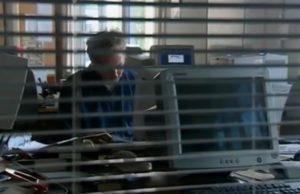- ‘Lies, damned lies etc…’ - 13th February 2026
- Missing in action - 12th February 2026
- Travel news again - 11th February 2026

After looking at the poor choice of words from the Bank of England (BoE) chief economist, Welshman Huw Pill, who said that people “need to accept” they are poorer and stop seeking pay increases, here our Editor Phil Parry examines the bland phrases that are used to cover up enormous failings.
Earlier he described how he was assisted in breaking into the South Wales Echo (SWE) office car when he was a cub reporter, recalled his early career as a journalist, the importance of experience in the job, and making clear that the‘calls’ to emergency services as well as court cases are central to any media operation.
 He has also explored how poorly paid most journalism is when trainee reporters had to live in squalid flats, the vital role of expenses, and about one of his most important stories on the now-scrapped 53 year-old BBC Wales TV Current Affairs series, Week In Week Out (WIWO), which won an award even after it was axed, long after his career really took off.
He has also explored how poorly paid most journalism is when trainee reporters had to live in squalid flats, the vital role of expenses, and about one of his most important stories on the now-scrapped 53 year-old BBC Wales TV Current Affairs series, Week In Week Out (WIWO), which won an award even after it was axed, long after his career really took off.
Phil has explained too how crucial it is actually to speak to people, the virtue of speed as well as accuracy, why knowledge of ‘history’ is vital, how certain material was removed from TV Current Affairs programmes when secret cameras had to be used, and some of those he has interviewed.
He has disclosed as well why investigative journalism is needed now more than ever although others have different opinions, how the coronavirus (Covid-19) lockdown played havoc with media schedules, and the importance of the hugely lower average age of some political leaders compared with when he started reporting.
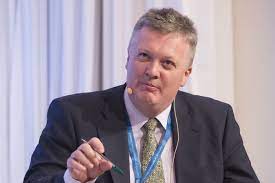
Once again, it seems, I must stress the importance of choosing words which tell the truth, AS WELL AS those that are sensitive to the feelings of people who might take them the wrong way.
Last month I looked at how the Bank of England (BoE) Chief Economist, Huw Pill, was forced to apologise after saying: “… what we’re facing now is …(a)… reluctance to accept that, yes, we’re all worse off”.
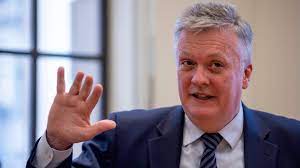
But he’s apologised, and declared: “If I had the chance again, I would have used different words to describe the challenges we face”.
Yet he is not the only one who has used the wrong words, and often people are so concerned to put a positive spin on what is actually a complete disaster, that the comments are totally laughable.

This is shown quite clearly in Vladimir Putin describing his incursion into Ukraine as “a special military operation”, when it was, of course, not as Mr Putin imagined it at all.
The invasion of Ukraine was ‘special’ in a way that he did not intend – it was, actually, a full-scale assault on another sovereign nation, and appears to have been a total catastrophe (when seizing the ENTIRE country was the original aim) which has been put centre-stage by the news now about the counter-offensive. This calamity for Russia comes despite them taking Bakhmut after MONTHS of attritional warfare.
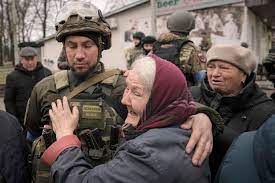
Russian generals have been slow to learn from their strategic errors with a botched initial assault on Kyiv.
They bungled an attack on the eastern Donbas region last summer and have frittered away tens of thousands of troops in a futile offensive on the same front over the past five months, but through it all Russia has maintained that it was simply “a special military operation”
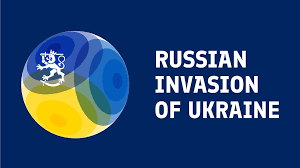
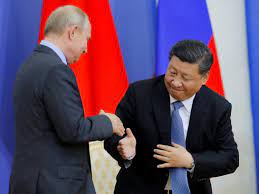
This technique of using words which, while supposedly accurate, conceal the facts, can also be seen in China.
The abandonment there of the appallingly badly navigated aim of having “zero-Covid” must be closely examined, to discover the reality, and was called “dynamic zero”, while the U-turn in policy was described by the regime as “optimisation of prevention and control measures”.
This came as negotiators behind a new Northern Ireland protocol showed that they were so nervous of putting out of joint the noses of Unionists, that at one point they decided to call the ‘Green Lane’ for goods with minimal checks, the ‘Express Lane‘ instead, because the ‘Green Lane’ was considered too nationalist. The Prime Minister Rishi Sunal called the negotiations a “decisive breakthrough”, others, though, may have different descriptions of them because the linguistic gymnastics haven’t stopped.
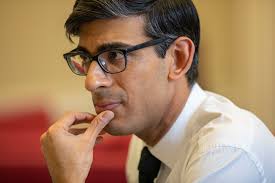
The concept of making border POSTS with the rest of the UK for goods, was complete anathema to hardline Unionists, and the UK Government effectively created them, but did NOT want to call them this, so civil servants came up with the idea of ‘SPS (Sanitary and Phytosanitary) Huts’ instead!
Yet there is history behind choosing words that hide the truth which everyone knows.
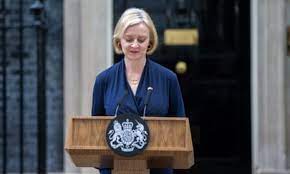
For example, Liz Truss, was probably the worst Prime Minister (PM) Britain has known, and only lasted 49 days. However she described the rash tax cuts that caused her speedy downfall last autumn in the following manner: “Regrettably these reforms did not command sufficient political and economic support”.
Her disastrous ‘reforms’ actually caused complete mayhem, and everybody knows it.
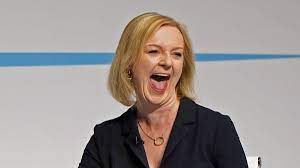
The Times (T) reported the fall out from them, with the headline “Mini-budget chaos…”. Its sister paper The Sunday Times (ST) called them: “…the Liz Truss madness (ignore the nonsense about her being right all along)”.
In this ‘madness’, the gilt markets forced Ms Truss out, and the currency went south. As one former senior Treasury figure put it: “If we had carried on like that, inflation would now be 20 per cent”.

But her bland description of it all, brings to mind the Japanese emperor declaring that “the war situation has developed not necessarily to Japan’s advantage” after America had dropped two nuclear bombs on his country.
We all know the reality – so why don’t people SAY THE TRUTH?!
The memories of Phil’s extraordinary decades long award-winning career in journalism (when he always tried to use correct words) as he was gripped by the rare neurological disabling condition Hereditary Spastic Paraplegia (HSP), have been released in a major book ‘A Good Story’. Order it now.
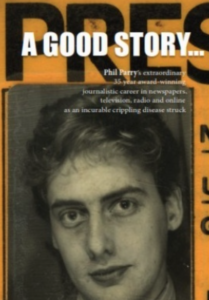
Regrettably publication of another book, however, was refused, because it was to have included names.
Tomorrow – how a BBC Cymru Radio Wales (RW) star has been accused of “flagrantly breaching” the corporation’s impartiality guidelines and there has been a call for her to be sacked after she published virulently anti-Conservative rants on Twitter and Instagram.








